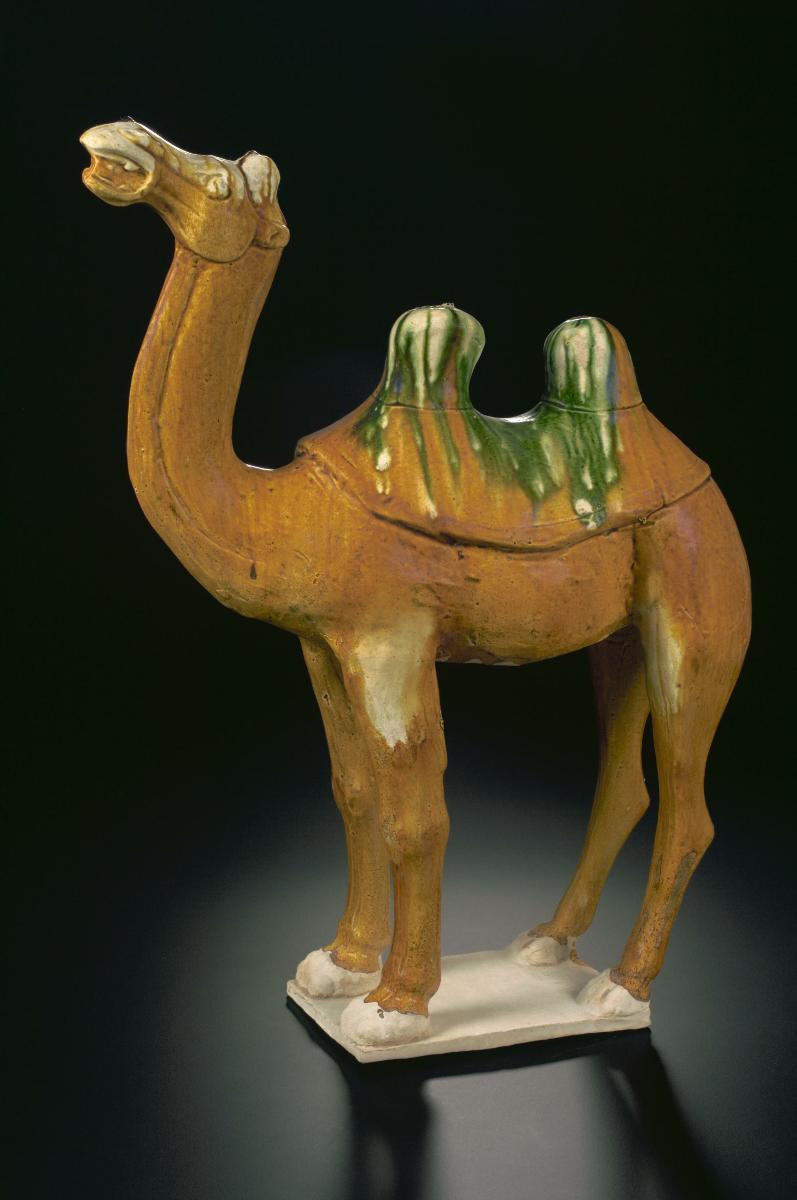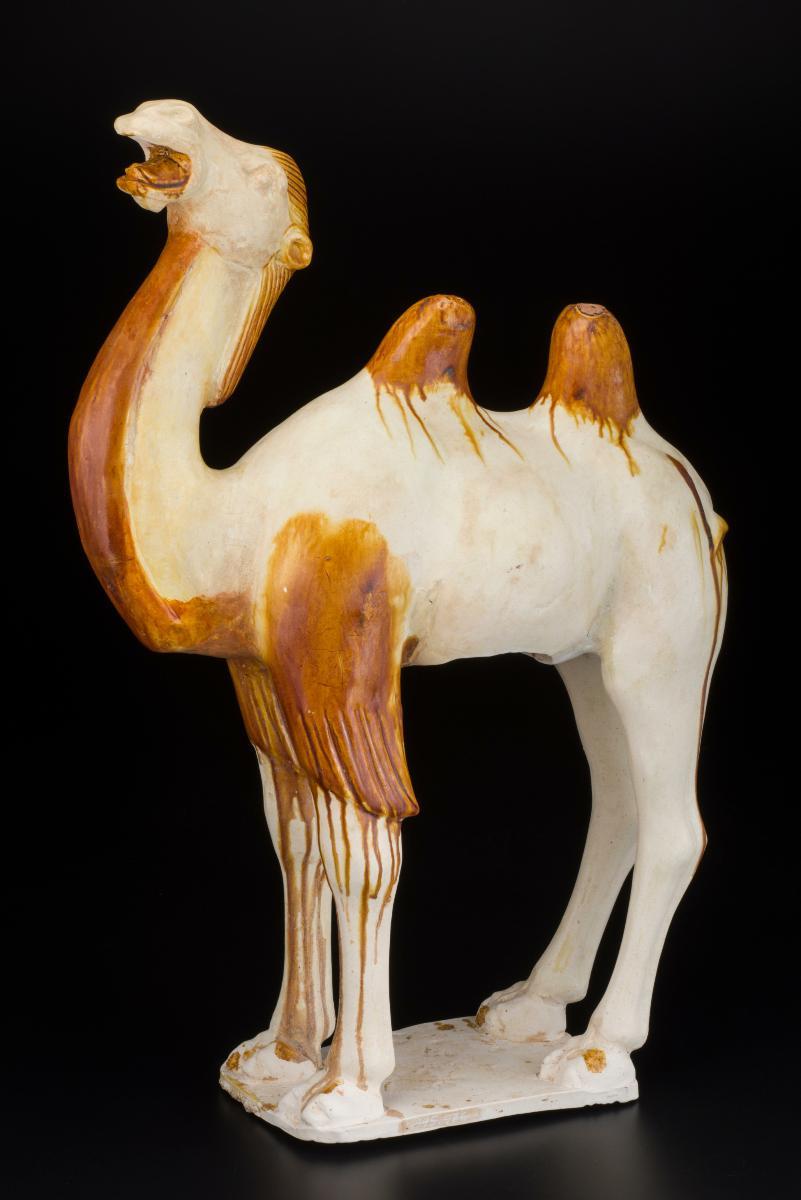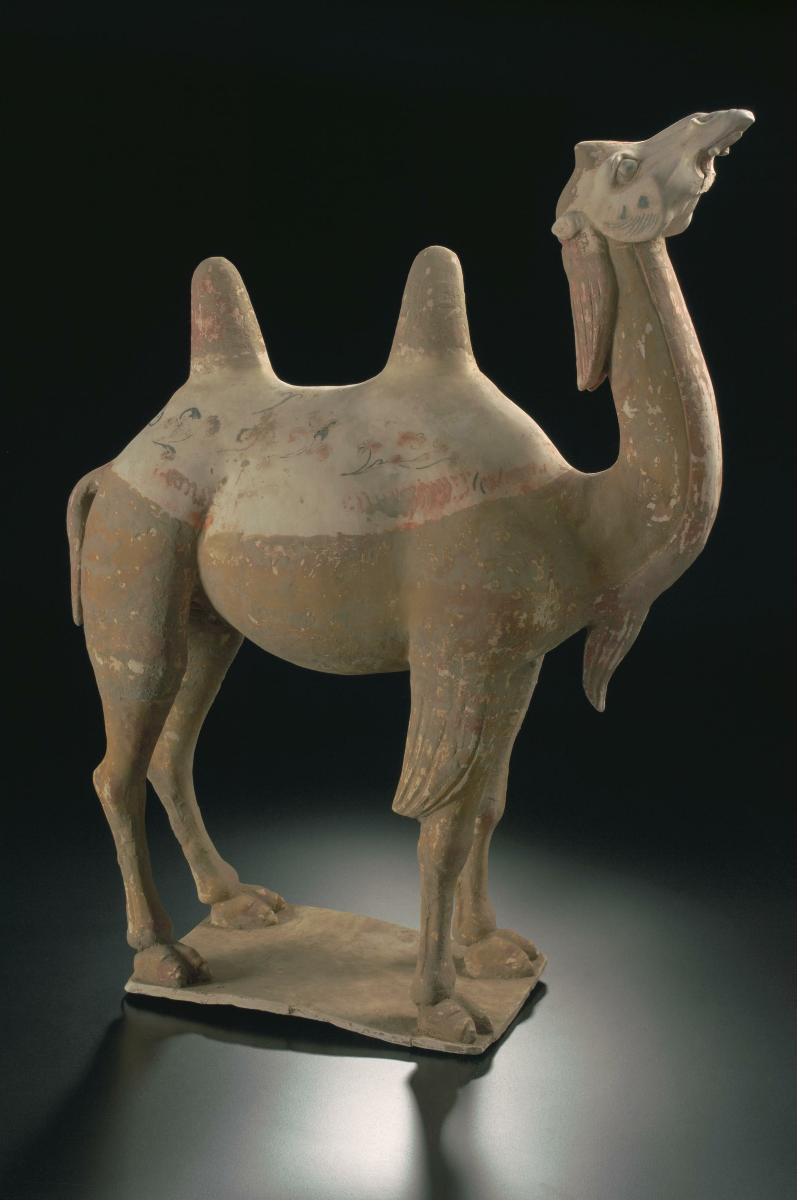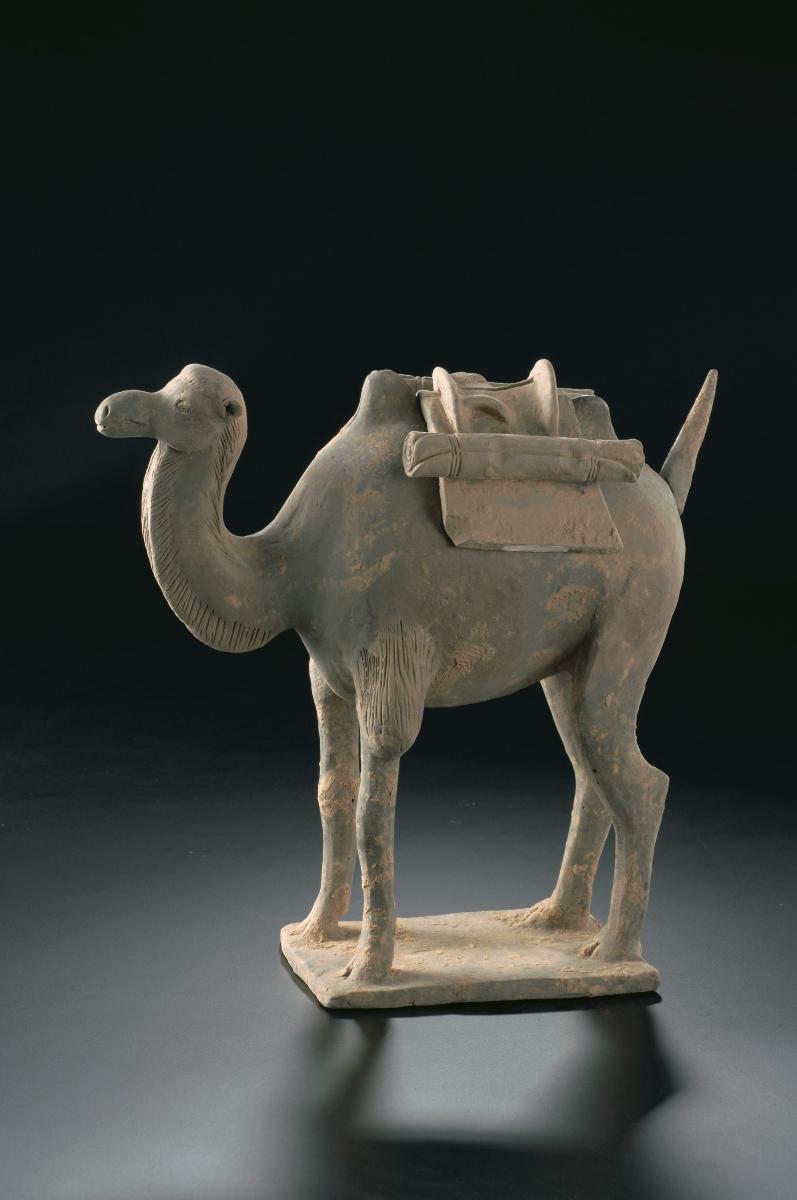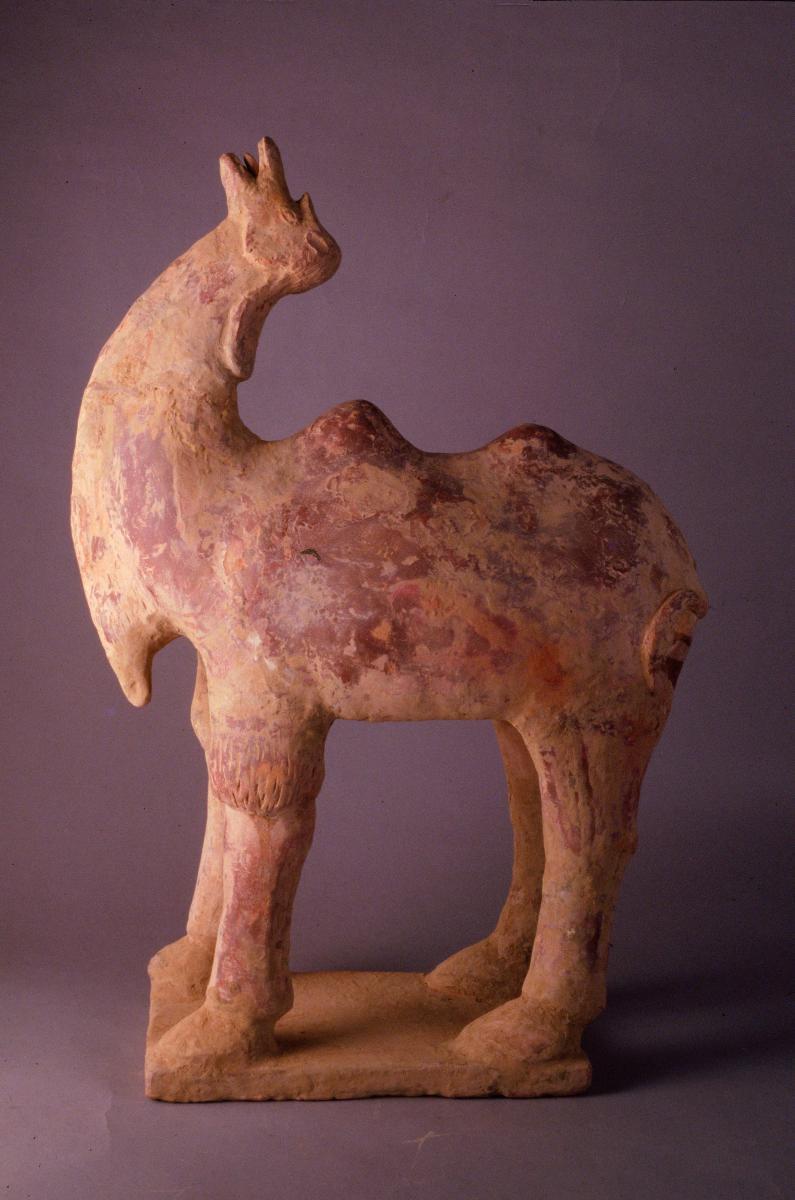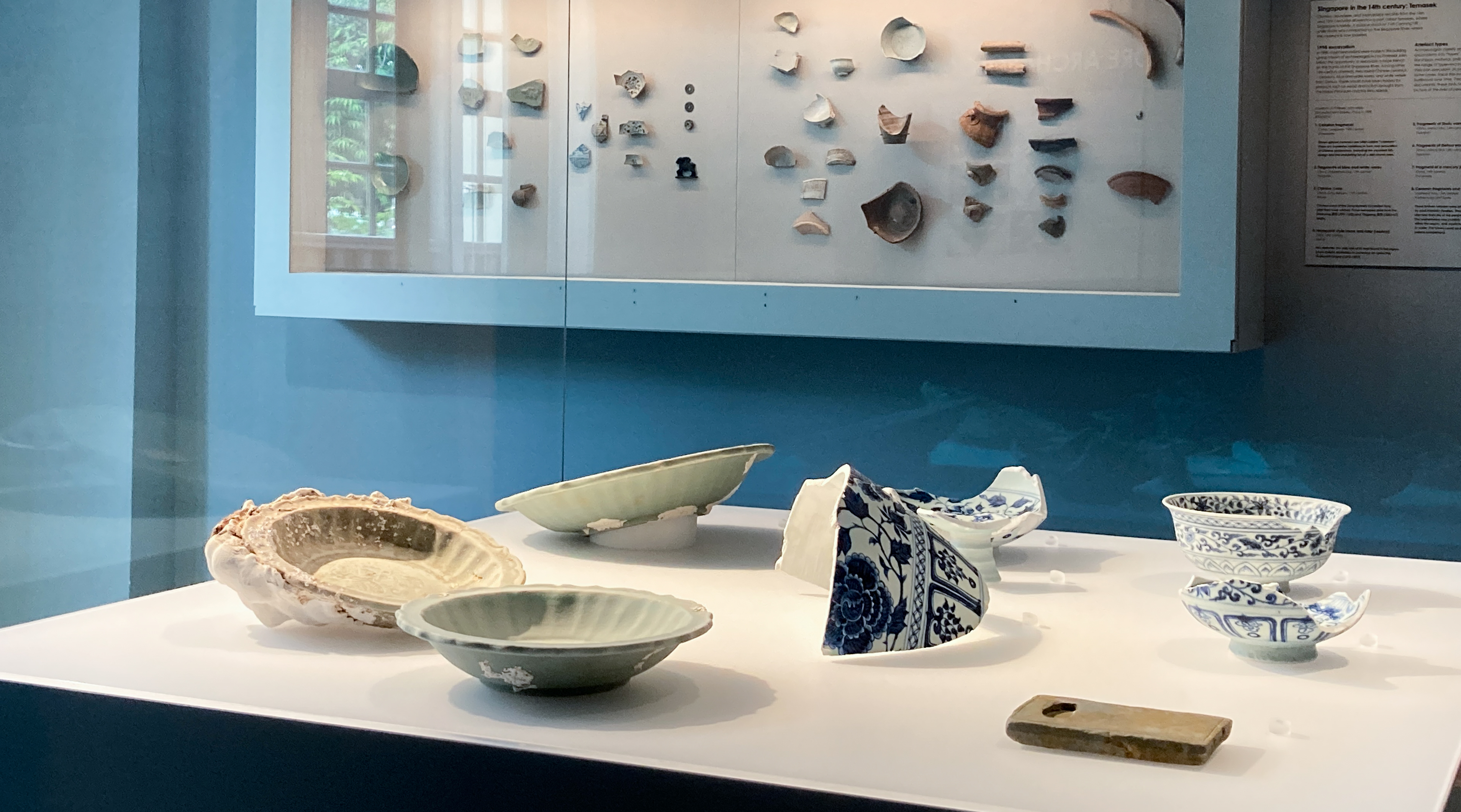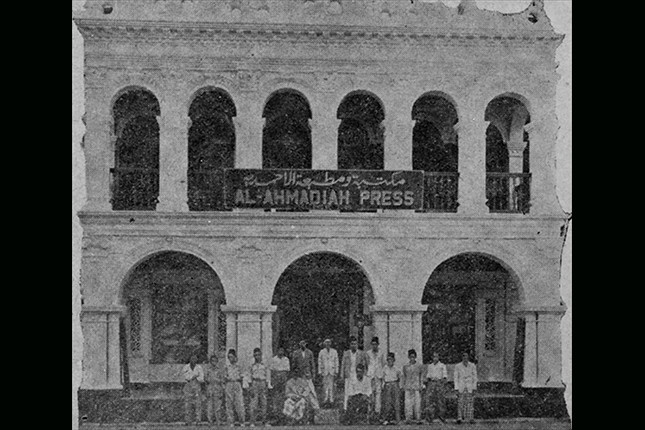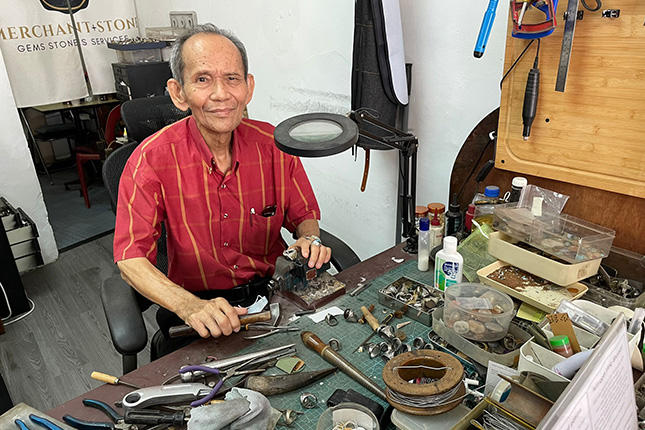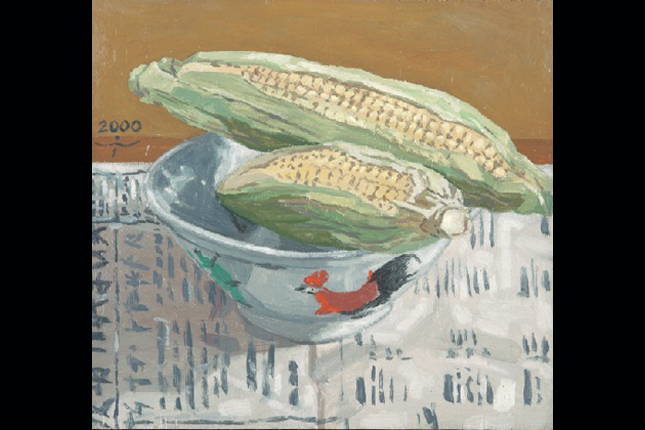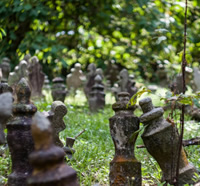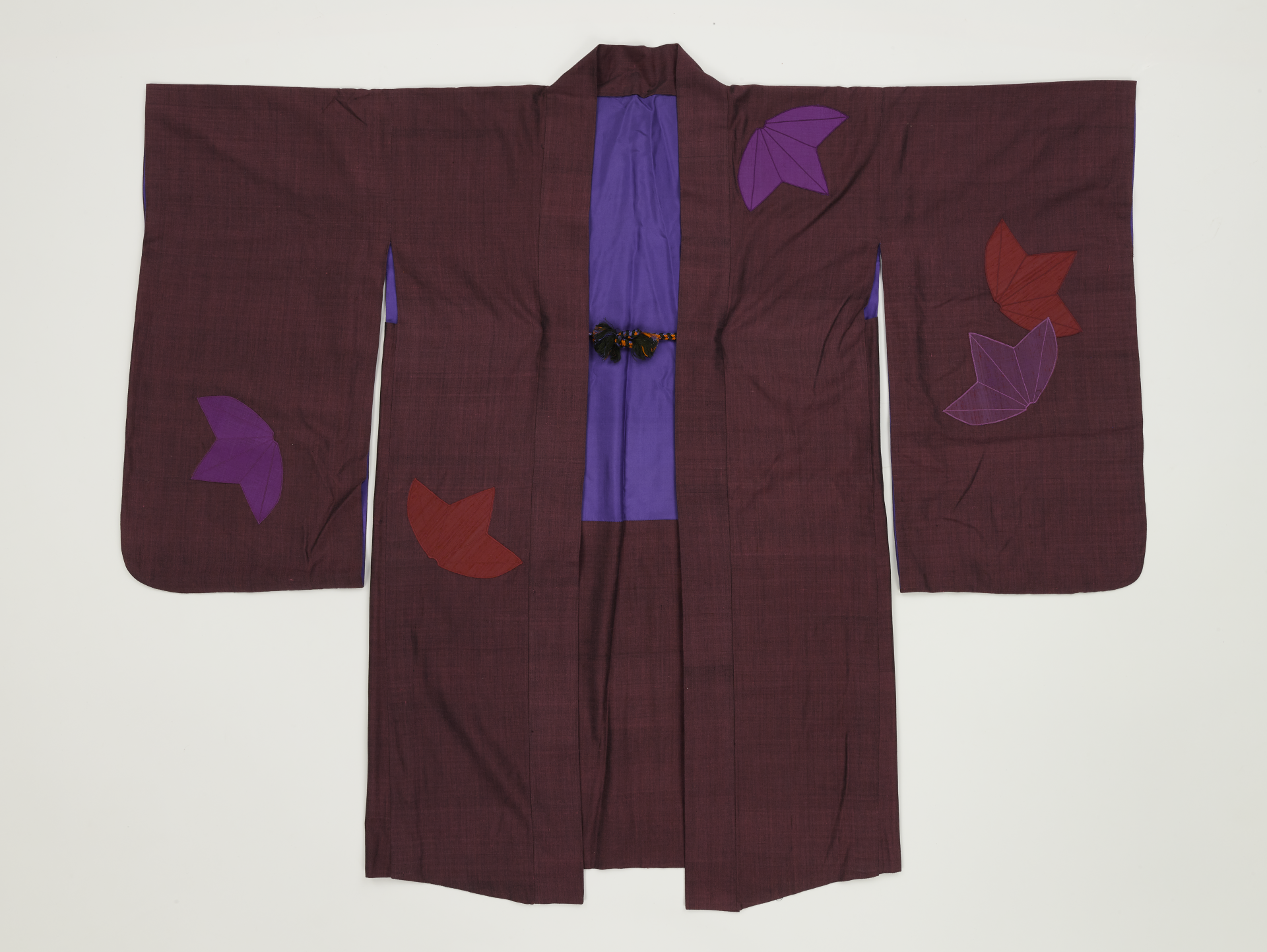This figure of a camel has streaky lead green, amber and brown-glaze decoration. It was part of a group of burial wares. The two-humped Bactrian camel was a symbol of the commerce that took place along the Silk Road. This was a difficult journey through mountains and deserts of Central Asia, that was best navigated by camels, which could withstand the burning heat and freezing cold of the desert. Chinese artists began to make models of camels for use as 'mingqi' or burial wares during the Tang dynasty (618-906). The practice continued into the Ming dynasty, when burial wares were still considered important for the afterlife.Lead-glazes were introduced during the Han dynasty (206 BCE-220 CE) and were further developed during the Tang (618-906) to include streaky ‘sancai’ (‘three-colour’) glazes.




